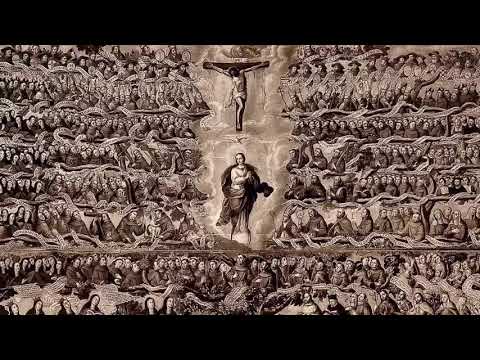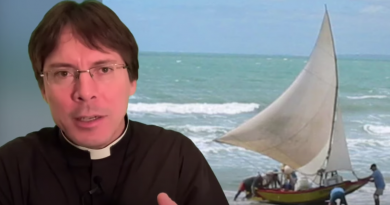All Saints of the Franciscan Order
On Tuesday 29 November 2022, we celebrated the Feast of All Saints of the Franciscan Order. Being a Franciscan myself, I came to realize the vast richness which exists in this great movement within the Church for the service of the world.
Many are the saints within this great movement. Surely I shall not be the one to decipher exactly how many saints and blessed there are. In all truth you can’t count them because the number of those officially beatified and canonized by the Church are so many. Not to add, of course, those who are in enjoying God’s beatific vision in the heavenly glory. Nevertheless, when one reads carefully their lives and listens and observers thoroughly their witness one instantly arrives at the conclusion that there are important elements which made this people holy.
Within this processual living of the Franciscan Way of Life wherein, by the grace of the Holy Spirit, we are all changed in, with and through Christ for the glory of the Father and for the salvation of the world, our brethren, and, most of all, of ourselves, we can easily detect some essential elements which help us choose the narrow gate. Jesus tells us so in the Matthean Gospel: Enter by the narrow gate; for the gate is wide and the way is easy, that leads to destruction, and those who enter by it are many. For the gate is narrow and the way is hard, that leads to life, and those who find it are few (Matt 7:13-14). It needs to be said that being one with the Father in Jesus through the Holy Spirit is an experience of joy! In Matthew 25 the servants who were good and faithful (Matt 25:21.23), to them is given this beautiful reward: enter into the joy of your master (Matt 25:21.23).
Some elements which encourage us to respond to God’s holiness on the footsteps of St Francis of Assisi are the following: (1) To live the gospel according to the spirit of St. Francis; (2) To be converted continually; (3) To live as sisters and brothers of all people and of all creation; (4) To live in communion with Christ; (5) To follow the poor and crucified Christ; (6) To share in the life and mission of the Church; (7) To share in the love of the Father; (8) To be instruments of peace; (9) To have a life of prayer that is personal, communal & liturgical; (10) To live in joy; (11) To have a spirituality of a secular nature; (12) To be pilgrims on the way toward the Father; (13) To participate in the apostolate of the laity; (14) To be at the service of the less fortunate; (15) To be loyal to the Church in an attitude of dialogue and collaboration with her minister; (16) To be open to the action of the Holy Spirit and (17) To live in simplicity, humility and minority.
In one way or another all the Franciscan Saints made their own, by the way they lived, that famous prayer which St Francis traditionally prayed: O Lord Jesus Christ, two favors I beg of you before I die. The first is that I may, as far as it is possible, feel in my soul and in my body the suffering in which you, O gentle Jesus, sustained in your bitter passion. And the second favor is that I, as far as it is possible, may receive in my heart that excessive charity by which you, the Son of God, were inflamed, and which actuated you willingly to suffer so much for us sinners.
How beautiful is the second reading we read in this feast, taken from the great Franciscan saint St Bonaventure, from his work The Defense of the Mendicants:
Let us not set our minds on high things, but condescend to the lowly. When our Saviour said first: “Blessed are; the poor in Spirit”, he suggested perfect renunciation of temporal possessions; when he continued: “Blessed are the meek”, he counselled denial of self-will and of that desire for personal gratification by which a man is made harsh and violent. When he said, thirdly: “Blessed are they who mourn”, he proposed the perfect avoidance of the delights of the flesh. When he continued: “Blessed are they who hunger and thirst for Justice” and “Blessed are the merciful”, he called for a just, kind, and loving attitude towards neighbours. When he added after this” Blessed are the clean of heart” and “Blessed are the peacemakers”, he attracted men towards a limpid elevation of the intelligence, and a tranquil and peaceful lifting up of the heart, by which the souls of the just are made to conform to Jerusalem, which is interpreted as “a vision of peace”. Finally, when he concluded: “Blessed are they who suffer persecution for justice’ sake, for theirs is the kingdom of heaven”, he returned to the origin, as if completing a circle; for it is in this persecution for justice’ sake that the sum of all things is accomplished.
As a confirmation of this truth, blessed Francis, the father of the mendicants, proposed in the beginning of his rule the first three points as requiring a vow because of their fundamental character. For he said: “The rule and life of the Friars Minor is this, namely, to observe the holy Gospel of Our Lord Jesus Christ by living in obedience, without property and in chastity.” Later, he recommended the other three as desirable complements when he said: “I also admonish the friars… to strive above all things to have the spirit of the Lord and his holy operation, to pray to him with a pure heart, and to have humility, patience in persecution and in infirmity, and to love those who persecute, reprehend and blame us.” Here he is touching upon the other three points. He first recommends elevation to God and he ends with love towards neighbour. Between these he places charity towards enemies.
In the first three instances, the perfect man is crucified to the world; in the next three, he is made to conform to God: like a six winged seraph, he is elevated above the things of the world and carried aloft to the divine. How fittingly, then, in the seraphic apparition did Christ impress his stigmata in approbation upon the holy little poor man! For Francis perfectly served and perfectly taught the perfection of the Gospel and (by the mark of his wounds) Christ gave us a clear sign of the way of perfection as opposed to the dangerous darkness of these later times; a sign through which we may return to him, the exemplar and end of perfect virtue; a sign of how to attain perfection if we learn not to set our minds on high things, but condescend to the lowly.
Almighty and ever-living God, you were pleased to make you Church illustrious through the varied splendour of the Saints of the Seraphic Order. As we venerate their memory in one festival may we also follow such shining examples of virtues on earth and thus obtain merited crowns in heaven. Through our Lord Jesus Christ, your Son, who lives and reigns with you and the Holy Spirit, one God, forever and ever. Amen.
Fr Mario Attard OFM Cap





